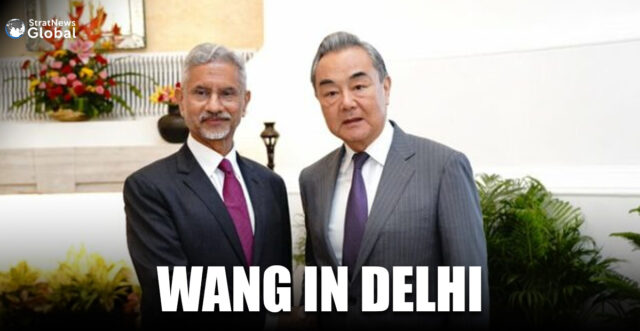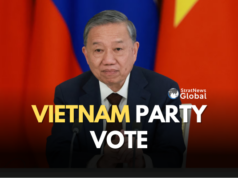
External Affairs Minister S. Jaishankar on Monday held talks with Chinese Foreign Minister Wang Yi in New Delhi, stressing that the future of India-China relations must be anchored in “mutual respect, mutual sensitivity and mutual interest.”
Wang Yi, also a member of the Communist Party of China’s Politburo, arrived on a two-day official visit at the invitation of National Security Advisor Ajit Doval. His trip includes the 24th round of talks between the Special Representatives of India and China on the boundary question. It is the first ministerial visit from Beijing since Prime Minister Narendra Modi and President Xi Jinping last met in Kazan in October 2024.
Wang Yi will meet NSA Ajit Doval on Tuesday to continue boundary discussions that remain at the heart of strained relations.
The talks come at a time when India’s ties with the United States are under strain following President Donald Trump’s tariff moves, adding weight to New Delhi’s engagement with Beijing.
Welcoming Wang, Jaishankar said the talks offered an opportunity to review ties after a “difficult period” in the relationship. He underlined that maintaining peace along the Line of Actual Control (LAC) remained a prerequisite for forward movement.
“The basis for any positive momentum is the ability to jointly maintain peace and tranquillity in the border areas. It is also essential that the de-escalation process move forward,” he said. The minister also highlighted counter-terrorism as a major priority and called for reforms in multilateral institutions to safeguard global stability.
Wang, in his remarks, said both countries had “maintained peace and tranquillity in the border areas” and resumed the Indian pilgrimage to Mount Kailash and Lake Manasarovar. He added that Beijing and New Delhi shared the confidence to “dispel interference, expand cooperation and consolidate the momentum of improvement” in bilateral ties.
The Chinese Foreign Ministry earlier said the visit was aimed at implementing the “important consensus” reached by the leaders, strengthening political trust, and “properly managing differences.” India’s Ministry of External Affairs spokesperson Randhir Jaiswal welcomed Wang Yi on social media, noting the importance of the upcoming discussions.
The timing of Wang’s trip is significant. It comes ahead of Prime Minister Narendra Modi’s expected visit to China for the Shanghai Cooperation Organisation (SCO) Summit in Tianjin later this month, his first since the 2020 Galwan clashes.
Analysts see Modi’s potential presence as a symbolic reset, but caution that the unresolved border standoff remains the central obstacle to a genuine thaw. For India, however, the SCO retains strategic utility as a platform for engaging not only China but also Russia and Central Asia, even as tensions with Beijing persist.
In a career spanning three decades and counting, Ramananda (Ram to his friends) has been the foreign editor of The Telegraph, Outlook Magazine and the New Indian Express. He helped set up rediff.com’s editorial operations in San Jose and New York, helmed sify.com, and was the founder editor of India.com.
His work has featured in national and international publications like the Al Jazeera Centre for Studies, Global Times and Ashahi Shimbun. But his one constant over all these years, he says, has been the attempt to understand rising India’s place in the world.
He can rustle up a mean salad, his oil-less pepper chicken is to die for, and all it takes is some beer and rhythm and blues to rock his soul.
Talk to him about foreign and strategic affairs, media, South Asia, China, and of course India.




